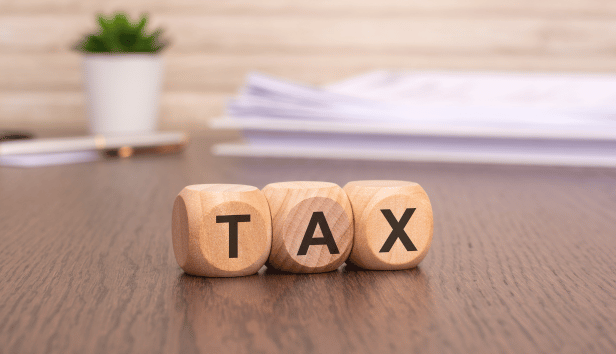

This article is for general guidance only and is not financial or professional advice. Any links are for your own information, and do not constitute any form of recommendation by Saga. You should not solely rely on this information to make any decisions, and consider seeking independent professional advice. All figures and information in this article are correct at the time of publishing, but laws, entitlements, tax treatments and allowances may change in the future.
Inflation has fallen significantly since October 2022, when it reached its highest rate in 40 years at 11.1%. Of course, lower inflation doesn’t mean lower prices – it just means they are now rising more slowly.
What’s more, inflation is now starting to creep up again, with the latest Office for National Statistics figures showing the consumer price index (CPI) rose to 2.3% in the 12 months to October, up from 1.7% in September.
Higher energy costs were primarily to blame. Rising prices will be a big concern for people who are already struggling to make ends meet, especially if they have a fixed income. And even if you’re not struggling, they can make a difference to your outgoings each month.
So, what can we expect to see over the coming year? Sarah Coles, Head of Personal Finance at Hargreaves Lansdown, told Saga Money: “Prices are set to rise slightly faster than the Bank of England would like during 2025 [the target rate is 2%].
It’s not expected to be anything like the runaway inflation we had over the past few years, but the forecasts are for more than 2.5%. “If you’re on a level annuity (one that doesn’t rise with inflation), it means having to make your money stretch further with each passing month.
It means shopping around will still be key, and drawing up a budget is going to be as vital as ever.” With the help of expert insight, let’s look at how the cost of living could affect you in 2025 and what you can do to keep bills down.
What's on this page?
Energy prices are continuing to rise and are unlikely to fall back to the levels we saw before 2020 any time soon. The energy price cap, which sets the maximum amount suppliers can charge for unit rates and standing charges, rose to £1,717 a year for a typical household on 1 October. This was up 10% from July’s £1,568.
“The price hike will affect millions of customers on variable rate tariffs at a time when their energy use is typically at its highest,” says Will Owen, Energy Expert at Uswitch.
“This increase risks putting more pressure on households who are already struggling with the cost of heating their home.”
The price cap will rise by a further 1.2% in January, taking the average annual bill to £1,738. Note that the actual amount you pay will depend on the amount of energy you use.
Chris Brooks, Head of Policy at Age UK, told Saga Money that the charity regularly hears from older people who are worried about what the winter holds, particularly following the government’s decision to scrap the Winter Fuel Payment for all but the poorest pensioners.
He says: “Obviously the Winter Fuel Payment being withdrawn is a major blow to the approximately 2 to 2.5 million pensioners who need [it] to heat their homes sufficiently and won’t be getting it anymore.
“Last year people had the cost of living payments as well, so a lot of people are looking at their household budgets and thinking they will have to cut back somehow.” More than 1.7 million households say they won’t turn on their heating this winter, which is almost double the 972,000 who didn’t use it last year.
There is a glimmer of hope on the horizon, with energy consultancy Cornwall Insight predicting that prices will drop slightly in April 2025 and then again in October. However, significant reductions are not anticipated, meaning households will need to adjust to higher energy prices.
If you are struggling, check you are claiming all the help you’re entitled to. Pension Credit is key to keeping the Winter Fuel Payment.
If you get the guarantee element of Pension Credit, you might also be eligible for the Warm Home Discount Scheme, shaving £150 off your electricity bill. Owen adds: “Anyone struggling to afford their energy bill should reach out to their supplier, as they may have funds, payment plans or advice available.
There are also plenty of fixed deals available right now that could save an average household around £100 per year against the current price cap.” Just be aware that fixed-rate deals tend to last one or two years and if prices drop during that time, you won’t see any benefit.
Many fixed-rate tariffs charge early exit fees so it’s worth looking for one without. Additional energy saving tips include paying your bills by direct debit, improving insulation, and lowering your thermostat settings.

Food inflation rose by 1.9% in the year to October, up from 1.8% in September, and prices are expected to rise further next year. Coles says: “Food inflation is expected to hover around 2% or just above during the year.
It’s much less stressful to deal with than double-digit inflation, but it does mean prices will keep rising. There’s also the risk that food prices will be affected by wages in the coming months.”
An increase in employer National Insurance contributions was announced in the Budget, as was a rise in the minimum wage, and both hikes will add to wage bills from next April. As a result, supermarkets and manufacturers could increase food prices to cover their costs, putting yet more pressure on household budgets.
To save money on your food shop, try switching to cheaper supermarket brands. You can also batch cook (which will save on energy bills too) and eat the leftovers another day, or freeze them. Shopping late in the day can also be a great way of bagging supermarket discounts.
Motorists have seen some welcome relief this year, with petrol prices falling to their lowest levels in three years. What’s more, Chancellor Rachel Reeves announced in the Budget that the 5p cut in petrol and diesel duties would be extended until 22 March 2026, saving the average car driver £59 a year.
Petrol prices could drop again next year too, says Alice Haine, Personal Finance Analyst at online investment service Bestinvest: “The International Energy Agency recently forecast a global glut of oil, with supplies set to outweigh demand by more than a million barrels a day in 2025.
“While it is hard to speculate on what will happen to oil prices over the next year, if the IEA predictions prove to be correct this could see oil prices dip, something that could in turn lead to lower prices at the pump.”
Regulated rail fares will go up by 4.6% from March 2025. This is only the second above-inflation increase in 12 years. Transport for London fares are expected to rise by the same amount, although this has not been confirmed.
At the same time the cost of most railcards, including the senior railcard, will rise by £5, or almost 17%, to £35. This is the first price rise since 2013. The disabled person’s railcard will stay at the current price of £20 (or £54 for three years).
Bus fares will remain capped at a maximum of £3 for a single fare in 2025. Routes where fares are less than £3 will be allowed to rise by inflation in the normal way – the exact increase will depend where you live.



The Budget 2025 has landed – and it could cost you more than you think. From stealth taxes to motoring costs, here’s what you need to know.


/mature-couple-looking-at-taxes.jpg?la=en&h=650&w=1400&hash=5CFABEEDC751F26D56DD3E85749E3C36)




From sales to cashback, here’s how to get more for your money online.
.jpg?la=en&h=354&w=616&hash=1254A3F816E81965A47EA68E3AEC9F7A)

Smart meter pros and cons explained, and how to use them. Plus, new rules mean you could get a payout if yours doesn’t work.
